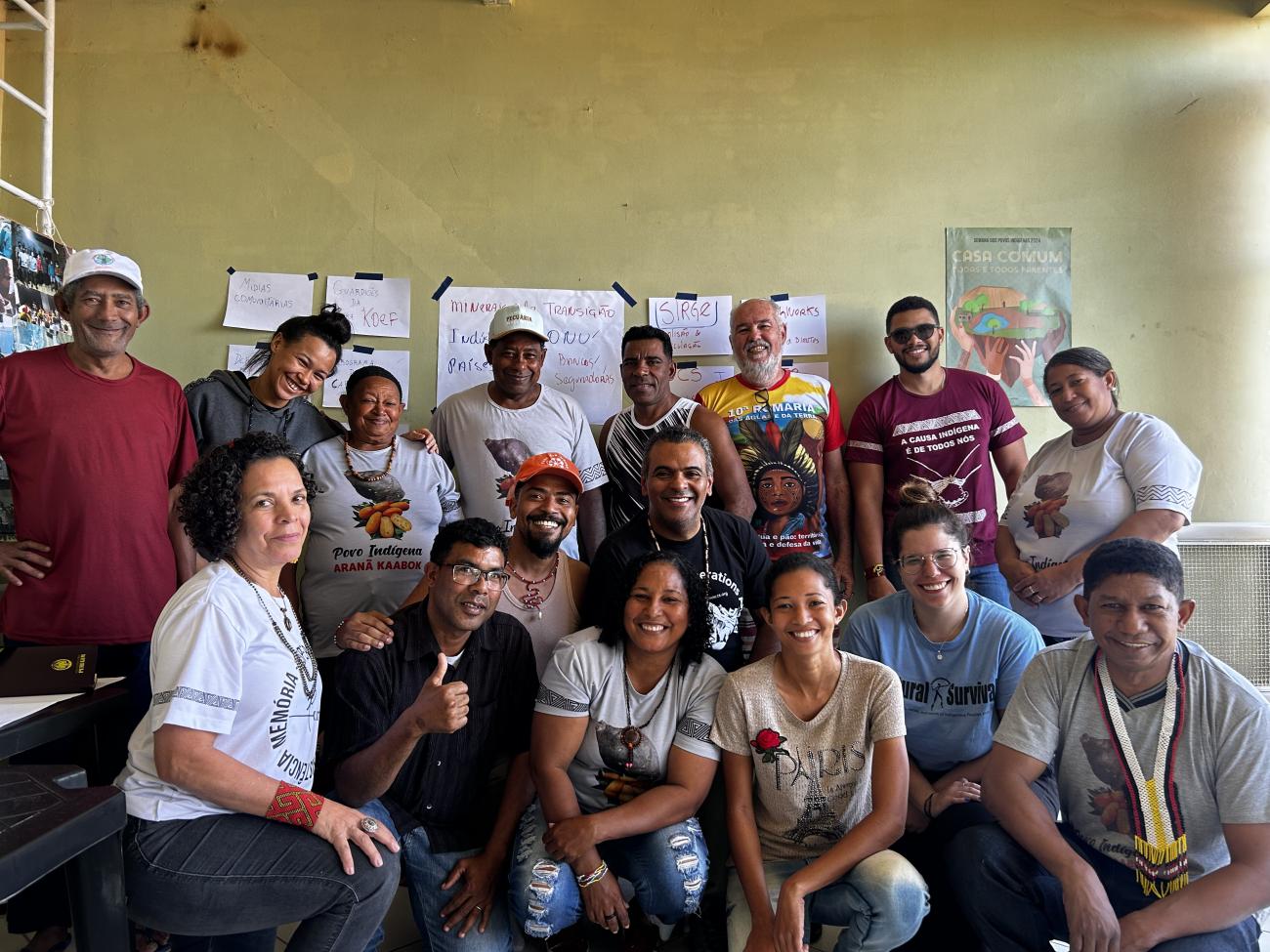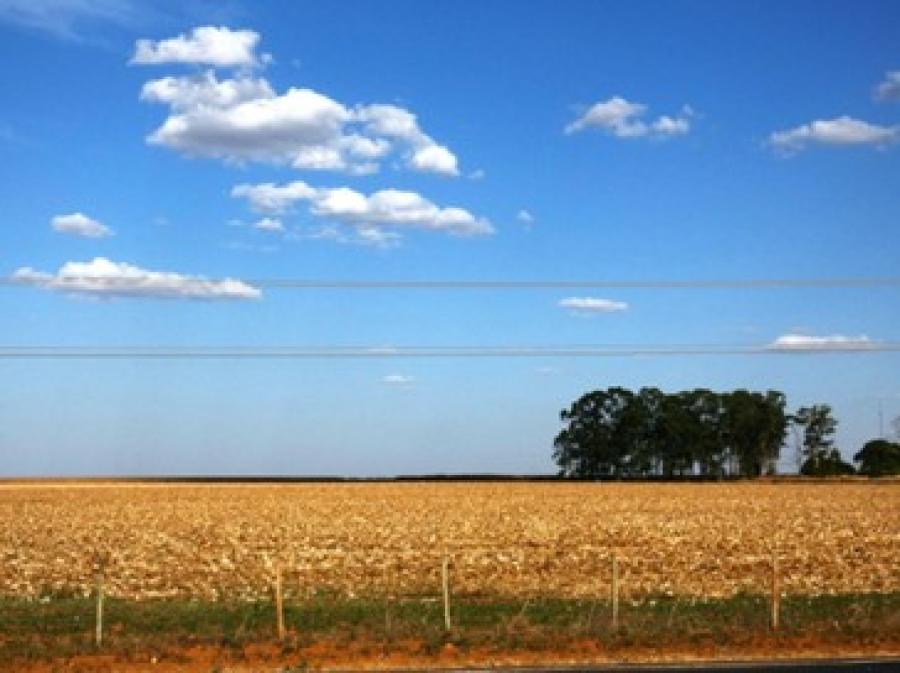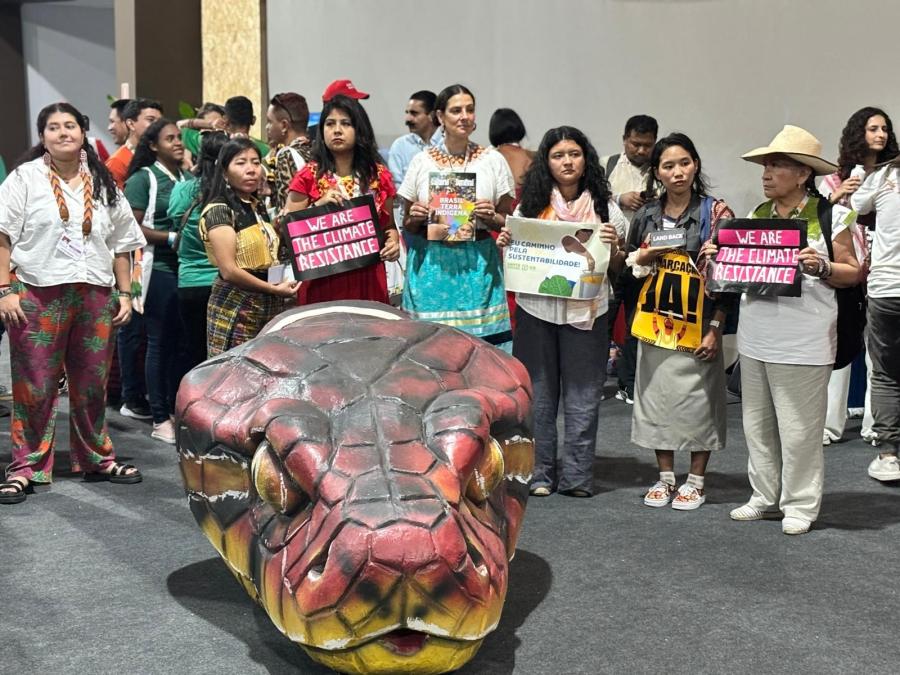
By Djalma Ramalho Goncalves (Aranã Caboclo, CS Consultant)
The Jequitinhonha Valley, ancestral territory of the Aranã Caboclo Peoples, stretches between the Brazilian states of Minas Gerais and Bahia, in a transitional zone where the cerrado, caatinga, and Atlantic forest converge. Today, the region faces prolonged droughts, record-breaking heat, and intense rains that harm crops and cause floods, landslides, and flash floods, extreme events intensified by climate change, environmental racism, and an extractivist-colonialist logic. A regime of political, epistemic, and economic rationality that turns traditional territories into sacrifice zones, naturalizes the exploitation of racialized bodies, and sustains itself through the ongoing logic of coloniality — whether through lithium mining, agribusiness, or the financialization of nature.
In the 1970s, the UN labeled the region the “Valley of Misery,” comparing its indicators to those of the poorest nations in the world. But no Peoples are inherently miserable. Misery is born from the exploitation of one people by another. Our wealth was, and still is, of another kind: the traditional knowledge we preserve, the understanding of the land as a living entity with whom we maintain a relationship of kinship. We cultivate the land, and the land cultivates us.
This cosmogony of reciprocity stands in stark contrast to the predatory extractivist model, which sees human beings and territory as inseparable, connected through practices, rituals, and narratives that overflow physical space and operate in symbolic and spiritual dimensions. This vital bond is now under threat.
The Aranã Caboclo community lives under attack from lithium mining, eucalyptus monoculture, and agribusiness, all facilitated by the absence of land demarcation. These ventures devastate socio-biodiversity, contaminate water sources, undermine our food and spiritual security, and fuel violence and persecution of Indigenous leaders. We are living through an unjust energy transition that turns our territory into a sacrifice zone, in the name of a future that does not include us.
The destruction we face is part of a long historical cycle. The region was once exhausted by gold and diamond mining. Since the 1960s, tax incentives have promoted eucalyptus monoculture and lithium extraction, severely impacting the climate, water bodies, and traditional communities. Even in the face of such destruction, and without the prior consultation required by ILO Convention 169, megacorporations continue to advance on our lands.
While the state funds mining companies that deepen the environmental crisis under a greenwashed narrative, we remain in a struggle for the demarcation of the Aranã Caboclo Indigenous Land. How can the Brazilian government invest millions to destroy our territory while neglecting our constitutional rights?
In 2024, the Brazilian Development Bank (BNDES) approved a loan of R$486.7 million to Sigma Lithium, aiming to increase lithium production by 250,000 tons per year. This investment comes from the new Climate Fund (Novo Fundo Clima). Since 2005, with FUNAI’s Ordinance no. 1.028/2005, the demarcation process has been repeatedly suspended, reopened, and delayed. In 2023, a new attempt was initiated with Ordinance no. 610, later complemented by no. 744, yet we remain without concrete progress. Institutional silence and delays become strategies of erasure.
This neglect has consequences. We live partly on our territory and partly in the urban areas of Coronel Murta and Araçuaí, on the margins of our land. The Tokoiós village was extinguished, and its lands redistributed to non-Indigenous people. During the COVID-19 pandemic, without a demarcated territory, we were denied access to vaccination, basic health care, and education. Even the Federal Public Ministry has acknowledged that we were denied land and, as a result, denied rights. Still, we resist.
Historically referred to as the “Caboclos of Jequitinhonha,” we reaffirmed our identity three decades ago as the Aranã Caboclo people, descendants of the Borum. They tried to bury us, but we sprouted. We have always been here. We are children of the Great Macaws. The ethnonym Aranã originates from the term Kataranã, which can be translated as “children of the Great Macaws,” where k means “great,” atara means “macaw,” and nan refers to “child” or “being.”
Among the many threads that bind us to this land, one emerges from the soil and nourishes our bodies, memories, and world, the Aranã Caboclo potato. In our language, Katanãn. It can be translated as “being that grows upon the skin,” with kat meaning "skin" and nan meaning "child" or "being." A sacred root. A root of science. A root of reexistence. In this age of “ecological transition,” hijacked by greenwashed discourses, the Aranã Caboclo potato is a radical, countercolonial technology for surviving the drought.
With it, we declare, our struggle is for life, ours, yours, and the planet’s. We know the challenges. We have many battles, but we also have victories. Recently, for the first time, a child from our people had their ethnicity officially registered in the civil registry, a right historically denied to us.
Today, we do not demand merely the right to exist but the right to plant and harvest according to our epistemologies. There will never again be a Jequitinhonha Valley without us. The demarcation of Indigenous Lands is urgent, not only for the rights of original peoples but also as a strategy for climate adaptation. Defending the Aranã Caboclo territory is defending ways of life and the possibility of other futures, more just, equitable, and free from racism.



